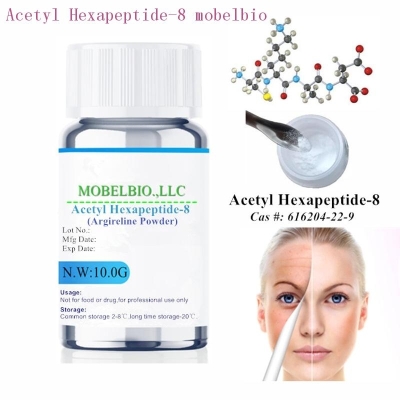Chinese scientists have found that antimicrobial peptides from marine organisms can replace antibiotics with less side effects
-
Last Update: 2013-11-01
-
Source: Internet
-
Author: User
Search more information of high quality chemicals, good prices and reliable suppliers, visit
www.echemi.com
On October 30, Chinese scientists first disclosed partial results of genome sequencing of kelp, Chlamys farreri and Penaeus vannamei in Qingdao So far, China has completed genome sequencing of seven large marine organisms, laying a scientific foundation for improving the quality and yield of these marine organisms Although the research of marine organism genomics in China started late, some research results have reached the international frontier level At present, about 60 species of large aquatic organisms have been sequenced, 9 of which are in China Since 2010, Chinese scientists have successively completed the genome sequencing of oyster, large yellow croaker, grouper and half smooth tongue sole and mapped the whole genome sequence map In addition, Chinese scientists have completed the whole genome sequencing of freshwater organisms, carp and Baiji dolphin At the international genomics conference held in Qingdao from 29th to 30th, Dr Chi Shan from Ocean University of China introduced some results of whole genome sequencing of kelp After studying the kelp genome, she said, it is predicted that the kelp genome contains 35725 genes, which are much larger than other eukaryotic algae genes "The kelp gene is 4.5 times the size of a Chlamydomonas gene and 5.2 times the size of a red algae gene." Chi Shan said Liu Tao, associate professor of the school of marine life, Ocean University of China, told reporters that by sequencing the genome of marine organisms and analyzing the genetic code, we can analyze the expression characteristics of each genome, retain and strengthen the genes that express the dominant characteristics, change the basic factors that express the inferior characteristics, improve the resistance of organisms, and let organisms grow in the direction that people want "At present, China has completed the whole genome sequencing of economic marine organisms with large production, which provides a scientific basis for improving the quality and production of these marine products." "For example, on the basis of genome sequencing, genetic modification and other means can make kelp and scallop have better taste, higher yield and nutritional value, and make the disease resistance of Penaeus vannamei stronger," Liu said Whole genome sequencing is also conducive to the study of functional genes of marine organisms, and the development of these functional genes will provide a broad space for emerging marine industries "Take kelp as an example Kelp is a drug in Pharmacopoeia Through the study of its whole genome, we can analyze which genome has which characteristics, and we can study new drugs based on it " "Seaweed glue and carrageenan in kelp can be used in clothing printing and dyeing, textile materials, humectants and milk additives," Liu said A company in Qingdao has made medical gauze based on some genome characteristics of seaweed This kind of gauze can absorb a large amount of exudate from the wound and reduce the times of changing gauze; general gauze will adhere to the wound, which is very difficult to remove, and this kind of gauze can be removed by washing directly with salt water, which helps to protect the new tissue of the wound Experts said that the functional gene resources of marine organisms are very rich, and can be applied, developed and continuously extended in many fields such as industry, agriculture and medicine According to Bao Zhenmin, antimicrobial peptides in marine organisms can replace antibiotics, both of which have the same effect, while the side effects of antimicrobial peptides are much smaller In addition, there are mineralized genes in shellfish, which can be used to develop biomaterials and medical materials, such as artificial bones, artificial teeth, etc.; there are adhesion proteins in scallops, which can be used to study related adhesion materials Experts such as Bao Zhenmin and Liu Tao said that the main problem facing China's marine genomics research and application of research results is the weak strength of basic research We should establish a public service platform for basic research, separate the basic research and application research, improve the efficiency of basic research and reduce the transformation cycle of research results In addition, Bao Zhenmin believed that China should also establish a national gene bank, integrate the existing genomics research results, set the direction of genomics research, and conduct long-term and sustained investment and Research on a practical problem.
This article is an English version of an article which is originally in the Chinese language on echemi.com and is provided for information purposes only.
This website makes no representation or warranty of any kind, either expressed or implied, as to the accuracy, completeness ownership or reliability of
the article or any translations thereof. If you have any concerns or complaints relating to the article, please send an email, providing a detailed
description of the concern or complaint, to
service@echemi.com. A staff member will contact you within 5 working days. Once verified, infringing content
will be removed immediately.







